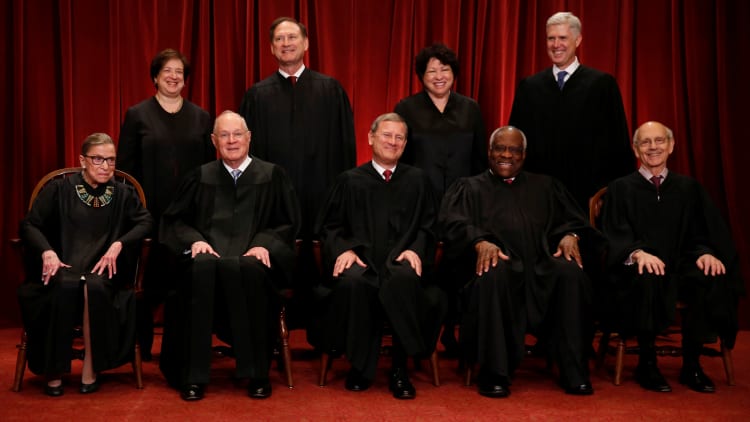The Supreme Court on Monday refused to overturn a longstanding rule that allows individuals to be charged by states and the federal government for the same offense.
In a 7-2 ruling, the justices affirmed the so-called "dual sovereignty" exception to the Constitution's double jeopardy clause. The opinion was authored by Justice Samuel Alito, who wrote that the rule is "not an exception at all."
The Fifth Amendment's double jeopardy clause states that "No person shall [...] be subject for the same offense to be twice put in jeopardy of life or limb." Alito wrote that because states and the federal government are both sovereign governments, a violation of state and federal law is not the "same offense," but is instead separate offenses.
Justices Ruth Bader Ginsburg and Neil Gorsuch, in separate dissents, took issue with the majority's formula.
In her dissent, Ginsburg wrote that under the Constitution, it is the governed, not the governments, who are the ultimate sovereigns.
In his dissent, Gorsuch wrote that a "free society does not allow its government to try the same individual for the same crime until it's happy with the result."

Had the court ruled the other way, experts said that President Donald Trump may have gotten a boost to his pardon authority. Presidents may pardon violations of federal laws, but do not have the same power over state laws.
Some observers speculated that a ruling overturning the dual sovereignty exception would benefit those charged in connection with special counsel Robert Mueller's federal investigation, though it was not clear the case could have had a dramatic impact on those individuals.
The justices, for their part, showed little interest in the president's pardon authority during oral arguments in December.
The facts of the case concern Terance Gamble, who was convicted separately by an Alabama state court as well as a federal court for unlawfully possessing a firearm. The dual prosecutions, now approved by the top court, mean that Gamble will spend three extra years in prison, his attorneys said in court documents.


